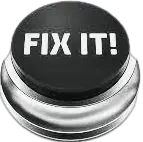What happens if you don’t pay ambulance bill? Some ambulance companies provide financial assistance programs designed to aid those on low income. These plans may offer payment plans or reduced fees.
Negotiations is also an option when dealing with ambulance companies or collection agencies, including sending reminders, making phone calls or taking legal action if necessary.
Consumers can also ask a local news reporter to investigate ambulance billing practices and draw attention to them, which may encourage the ambulance company to offer more favorable terms or settle on an acceptable amount or forgive any debts that have accrued.
The Ambulance Company and The Amount owed
Ambulance bills can be costly, and those unable to pay them may face legal action from their ambulance company. Reminders or calls from collection agencies could attempt to recover what’s owed; failing this, claims may also be filed with credit reporting agencies which could have adverse repercussions and cause further credit score dings if debt remains outstanding for too long.
Also read: How to Measure Waist Without Measuring Tape.
Patients covered by insurance policies can contest their bill by informing the ambulance service of their financial difficulties and informing them of the appropriate arrangements or discounts that might apply to their bill. They could also consult a financial counselor for help managing debt and negotiating in their favor.
Contacting the state insurance commissioner may also provide relief; usually such programs include sliding scale fees or payment plans to help with costs; some states even cover part or all of this cost for low-income residents. Furthermore, patients may reach out to their employers about reimbursement policies; if they have employer-sponsored health insurance they could potentially recoup some or all of the cost from an ambulance ride through employer benefits.
The Debt Could be Assigned to a Collection Agency
Ambulance bills can be costly, and if you fail to pay them the company may take steps to collect on their debt by sending reminders, calling, or even going to court. Not paying may also impact your credit score negatively and make obtaining loans or credit difficult in the future; however there may be ways of finding financial assistance for ambulance bills, such as negotiating with providers or using financial assistance programs.
When faced with an unexpected ambulance bill, your first step should be to carefully review its invoice and understand why it costs what it does. Next, verify whether or not your health insurance covers ambulance bills; some charities or non-profits also offer financial aid options.
If you cannot pay your ambulance bill, contact the company and request an itemization of charges to help identify if there are any discrepancies or mistakes in billing. Also inquire as to a payment plan in exchange for reduced debt; most ambulance companies would prefer having payments than none at all!
Unpaid ambulance bills may be reported to credit reporting agencies, which could lower your credit score and make obtaining loans or credit cards in the future more challenging.
The Debt Could be Reported to Credit Report Agencies
Debt collectors could report medical debt to credit agencies, which could damage your score and make it more difficult to acquire loans or credit cards in the future. You should aim to settle your debt quickly in order to prevent it from having an adverse impact on your rating.
Ambulance services may be costly, but help is available. Many insurance policies cover ambulance rides at different levels depending on your policy – check this before an emergency strikes and read up on its terms to be sure of coverage before reading up on its details. Supplemental health insurance that covers transportation expenses might also help. Nonprofit organizations and charities also often provide financial assistance for medically necessary ambulance transport needs.
Negotiate with the company or collection agency involved. They may agree to an installment plan or settle your debt for a lesser sum, though this cannot be guaranteed; additionally it would be wise to seek legal advice prior to agreeing on any settlement terms.
Medical debt is an increasingly pressing concern among people living on low incomes and in black communities, leading to changes at all three nationwide credit reporting agencies aimed at better supporting these consumers. Furthermore, the CARES Act passed in March 2020 prevents healthcare providers including ambulance services from balance billing patients for COVID-19 related services; additionally it prohibits them from charging more than their health insurer covers for this service.
The Debt Could be Pursued in Court
However, you have various tools at your disposal to fight an ambulance bill. Reviewing your health insurance policy to make sure emergency transportation coverage exists; and asking for an itemized list of services and charges from the ambulance company in question so you can negotiate to have any erroneous fees removed by them – often ambulance companies charge patients more than necessary in order to cover operational and staffing costs; ask your insurer to investigate this claim as well.
An effective way of dealing with excessive medical debt is contacting the hospital or ambulance provider and explaining your financial circumstances. Most hospitals and providers will work with patients to create an acceptable payment plan; alternatively, charities or non-profits that provide financial aid may also offer help for medically necessary ambulance bills.
Alternatively, if you cannot pay your ambulance bill on time or make arrangements to reduce its balances quickly and make payments promptly, legal action from collection agencies or ambulance companies may ensue and negatively affect both your credit score and bank account. Garnishments could occur against wages or bank accounts. You can avoid this scenario by making quick payments towards your debt; also take measures to safeguard your score such as paying all of your bills on time and keeping credit card balances as low as possible.

